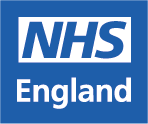A survey for children and young people (aged 13-17) with Type 1 Diabetes on their experience of using technologies to support their diabetes (who are not currently in a clinical trial or pilot)
Overview
This information sheet is to be read by both the person with diabetes and their parent, guardian, or carer.
You are invited to participate in this survey if you have type 1 diabetes and currently use either a continuous glucose monitor and/or an insulin pump.
Please read the information below carefully and if you have any questions contact the survey lead: matthew.robinson15@nhs.net
What is the purpose of this survey?
The purpose of this survey is to better understand why patients do or do not get offered and choose to use new diabetic technologies, such as continuous glucose monitors, insulin pumps, and hybrid closed loop systems (a new technology). The results of this work will help inform the care patients receive across the NHS. We will be surveying people with type 1 diabetes, healthcare professionals, NHS managers and commissioners as well as talking to industry and charities.
How we will manage the information provided
Your participation will be confidential, and you will remain anonymous. The personal data we collect from you cannot and will not be used to identify you, it is collected so that we can ensure that our work involves a broad range of experiences. The individual data collected will be stored securely and will be deleted once the survey is completed and published. We will keep your answers completely confidential and they will not be linked to your medical records.
The NHS Privacy Statement can be found on our website. Please do not include any personal medical information in any of the free-text boxes that could be used to identify you.
What will happen to the results of the evaluation?
The results of the survey will help inform the care patients receive across the NHS relating to the use of technologies to support patients with diabetes as well as other treatments, including non-diabetic technologies. The information collected may also be used to inform academic papers.
Audiences
- Patients
- Service users
Interests
- Diabetes prevention
